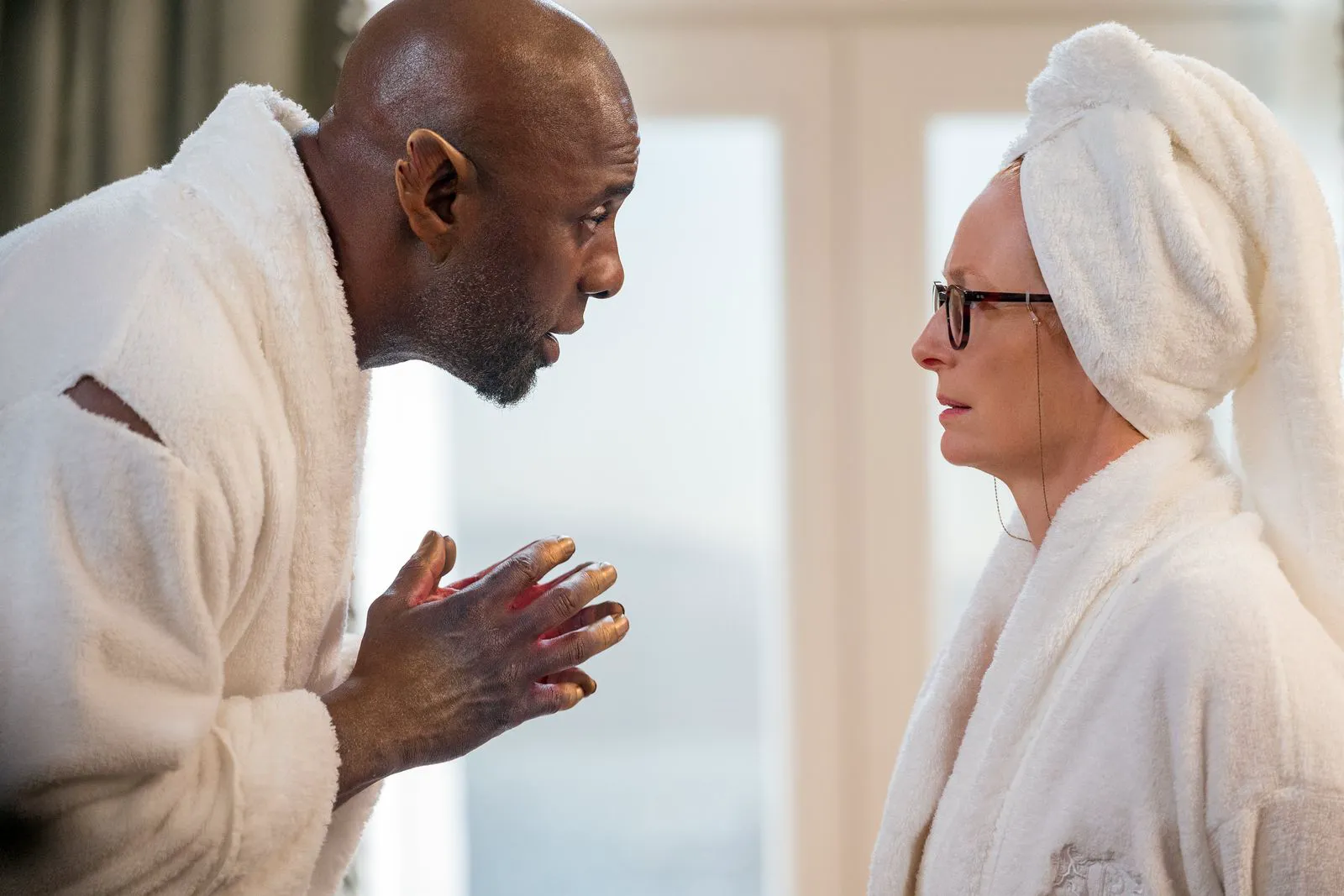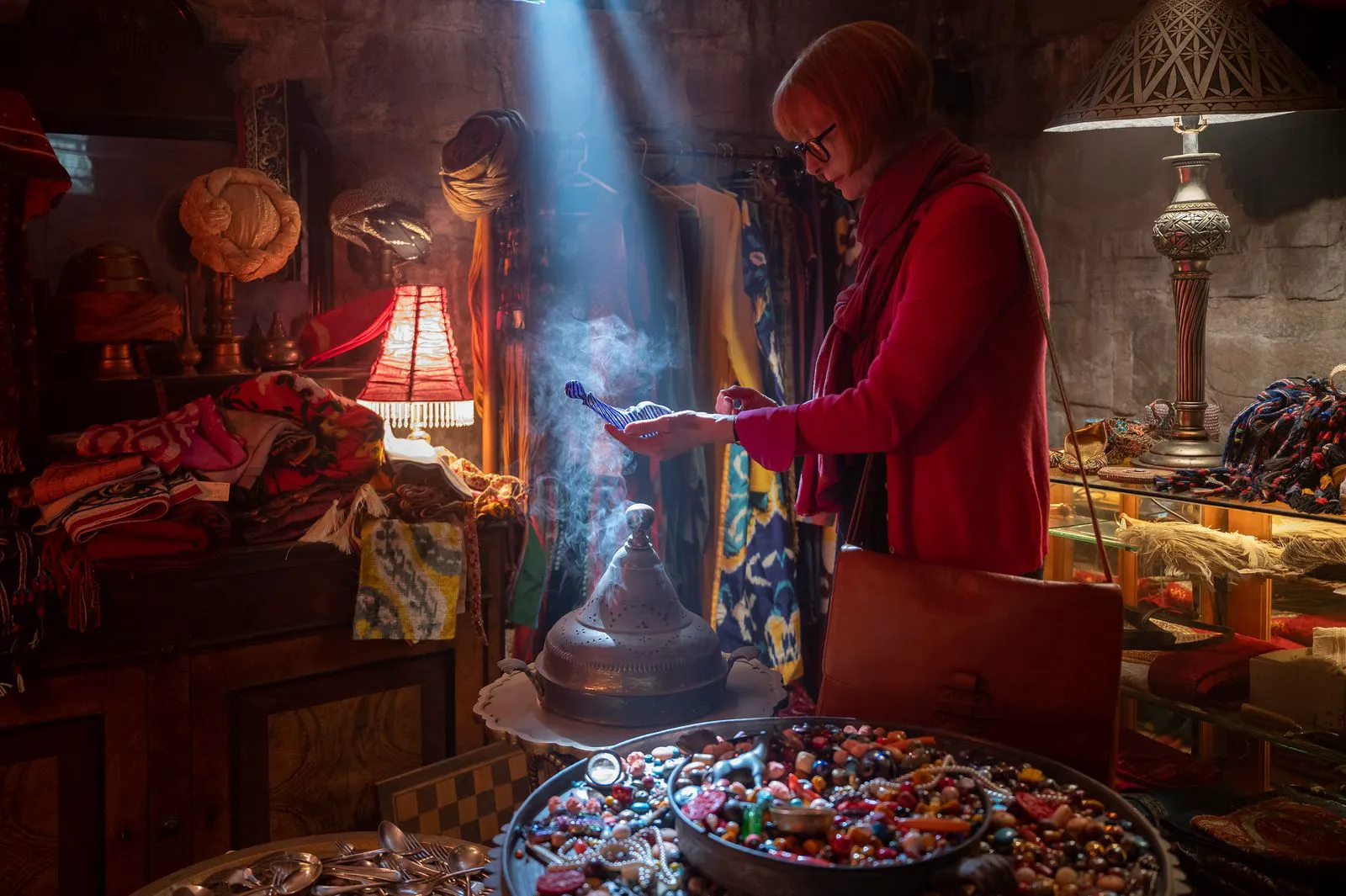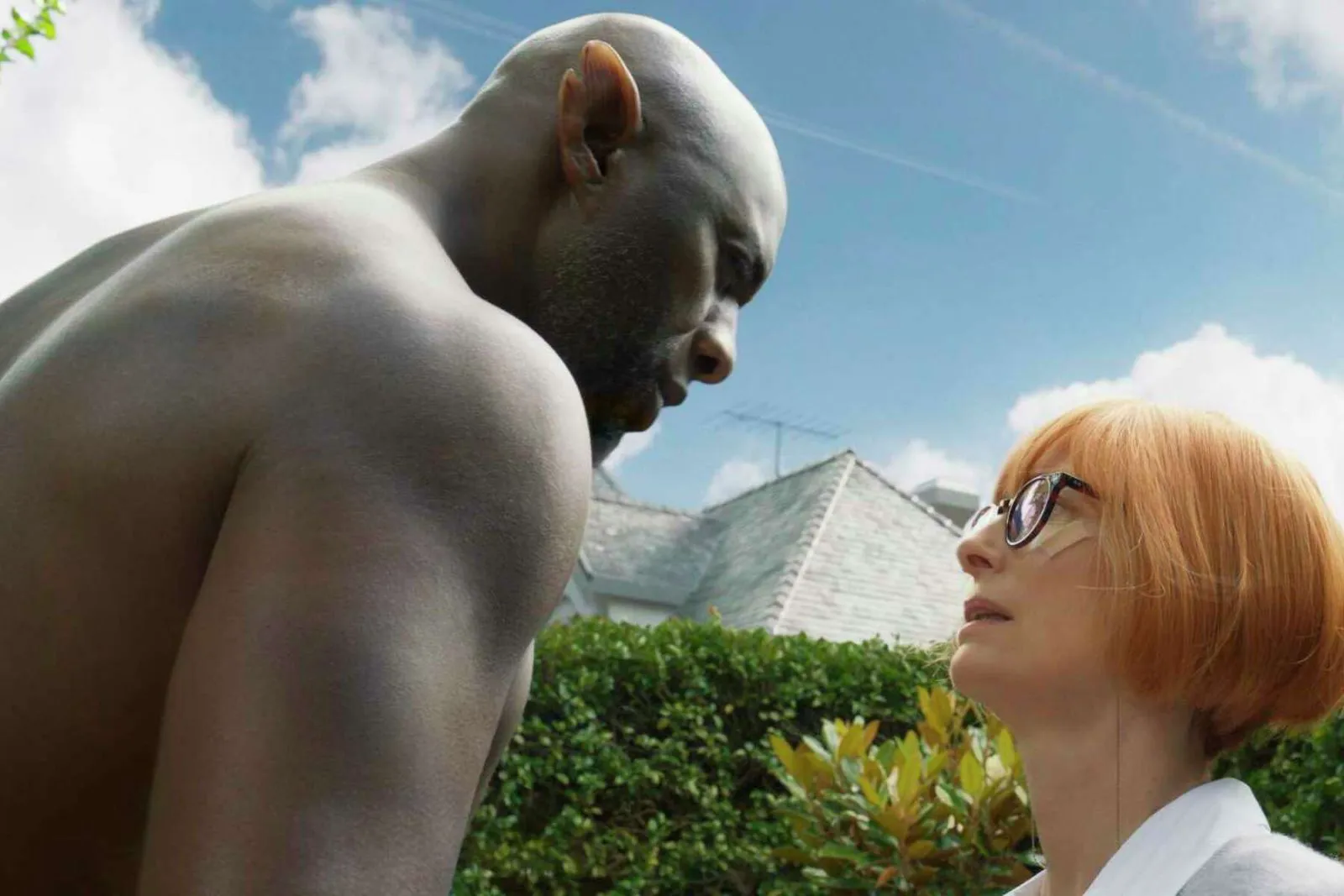George Miller’s Sentimental Epic: A Tale of Love and Loneliness in “Three Thousand Years of Longing”
George Miller, the visionary behind “Mad Max,” presents a narrative that explores the essential connection between love and solitude.
Alithea Binnie (Tilda Swinton), a narratology scholar, journeys to Istanbul for a conference. In a quaint shop, she discovers a vial, inadvertently releasing a Djinn (Idris Elba). The Djinn offers her three wishes, but Alithea hesitates. Instead, she invites him to share the story of his imprisonment and existence.

Tilda Swinton as Alithea Binnie in “Three Thousand Years of Longing”
A Shift in Scenery, a Constant in Themes
In his first full-length film in seven years, Oscar-winner George Miller trades the dystopian dust and roaring engines of “Fury Road” for the quietude of a five-star hotel and pristine white robes. Here, two kindred spirits, a human and a Djinn, grapple with confusion, captivity, a longing for connection, and the anticipation of wonder. What is it like to love a wish-granter, a figure often portrayed as comical or a trickster? Is it possible to escape the shackles of modern-day enslavement (technology, circumstances) and share that freedom? Can a millennia-old narrative be rewritten to attain elusive, mythical happiness? Miller answers these questions gradually, blending relatable, everyday elements with a fantastical setting reminiscent of Tarsem Singh’s “The Fall” and the recent “Everything Everywhere All at Once.”

Tilda Swinton as Alithea Binnie in “Three Thousand Years of Longing”
The Power of Indifference and the Allure of Stories
Based on Antonia Byatt’s short story “The Djinn in the Nightingale’s Eye,” the film deliberately focuses on Alithea’s initial indifference. She is unimpressed by magic, and the Djinn himself doesn’t frighten her. This might stem from her extensive knowledge of fairy tales and legends as Professor Binnie. Perhaps it’s a result of her ex-husband’s betrayal, leading to emotional detachment and self-sufficiency. “I’ll count to three, and you’ll disappear,” Alithea asserts. She believes the world operates by her rules, and mythical figures have no place in reality. Yet, the Djinn remains in her room, awaiting the utterance of the necessary wishes. He yearns for his personal Valhalla, for other Djinns. Alithea, on the other hand, is in no rush (her flight to London can wait). Thus begins a series of vibrant conversations, where the Djinn recounts his love for the Queen of Sheba, glimpses into the reign of Suleiman the Magnificent, and bestows all the world’s knowledge upon one of his lovers, yet never achieves the freedom he craves.

Idris Elba as the Djinn in “Three Thousand Years of Longing”
A Symphony of Lonely Souls
Miller conceived the film in the 1990s. Within a concise runtime, he reaffirms his storytelling prowess, meticulously dividing the plot, twisting time, and connecting seemingly disparate individuals. In the third act, after time-traveling sequences filled with striking CGI, a minimalist symphony of lonely souls emerges, gradually finding meaning in a world that often lacks it. After some hesitation, Alithea relents and articulates what is obvious yet often forbidden: she asks the Djinn to love her, to remind her of this distant emotion, to recalibrate her off-course life. The Djinn sadly agrees, condemning himself to gradual decay.
Finding Meaning in a Modern World
Leaving the hotel, the protagonists relocate to bustling London. The Djinn learns about humanity’s advancements, studies medical technologies and colliders, and frightens Alithea’s xenophobic neighbors with his appearance. He frequently notes the contradictions in human nature and the “metastasis of hatred,” something he is unlikely to comprehend. Alithea continues her scholarly pursuits, hurrying home to her beloved, until she recognizes the incompatibility of their relationship with his magical existence. Separation is inevitable, but Miller underscores a simple truth: stories are immortal, and therefore, we have partially secured our place in the infinite realm of narratives. Taking a therapeutic break between filming two of the most ambitious blockbusters in history (“Furiosa” is slated for release in 2024), Miller reminds us of the redeeming power of dialogue, connection, and the invaluable nature of experience. The book closes – only eternity remains.